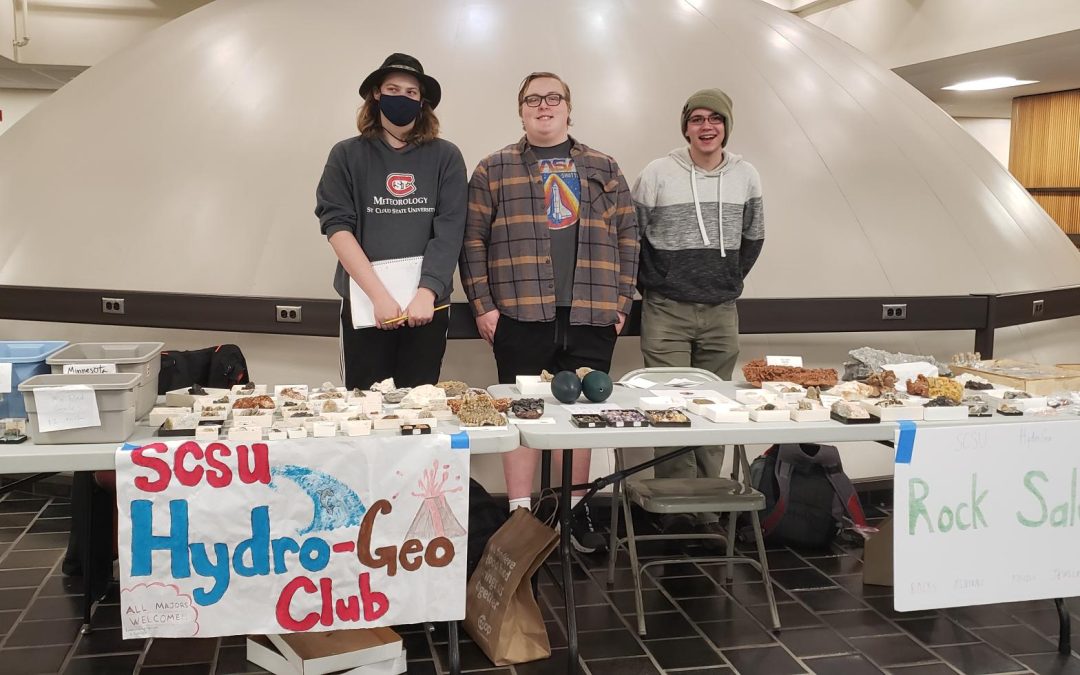Article Written by Jessica Thao. Photo by Jessica Thao.
When you go on a hike, you’re almost always bound to pass by a body of water; underneath that body of water are bound to contain either big or microscopic rocks. That combined can be considered “hydro-geo.” Where does the word “hydro-geo” come from?
Two words make that up: hydrology and geology. Hydrology is studying the movement of the water cycle and its resources, whereas geology is studying the structure of rocks and minerals.
From April 17 to April 21, St. Cloud State University’s Hydro-Geo Club held a rock sale in the quiet lobby of the Robert H. Wick science building, in which they were selling stones, minerals, and maps.
The stones and minerals were purchased from collectors, alumni, or from “hydro-geo trips” their organization members take seasonally. The organization determined sale prices through online research comparisons and how much they initially got it for. The prices for this sale typically ranged around twenty-dollars. The funds from these sales would then go towards those seasonal group trips.
“Last summer we took a trip to Colorado, and this summer we’re going to the Boundary Waters in Duluth to look at rocks and appreciate nature,” said Dill Evans, the president of the Hydro-Geo Club. Evans finished off with, “We’re a big outdoorsy group and very active in a rock science choice, especially for biology majors.”
A member of the club, Miles Harmala, expressed gratitude when talking about the best experiences he had in this student organization. He said the best things about being in the club include but are not limited to the group trips, great group chemistry, and just learning about science.
“I do think I learn about geology.” Harmala said. He continued, “For example, we went to a dam to learn about how rocks form, and their dynamics are very interesting to me.”
Another member of the club, Haden Ness, is a newcomer to the Hydro-Geo Club as he joined just this semester. He expressed excitement when talking about his experiences as a newly joined member. What Ness enjoys so far being in the club includes things like watching movies related to hydrology and geology and working in the Robert H. Wick building’s planetarium.
“As a recent member joining, it’s very fun and anyone who likes rocks or water should join,” Ness said.
Harmala and Ness briefly discussed with each other how even though the organization may currently focus more on geology than hydrology, the trips balance out the focus on both topics.
In their weekly club meetings, they socialize with students of similar interests while learning about related topics, share information about jobs or internship opportunities, and organize group events and field trips.
Students don’t have to be a science major to join, as the Hydro-Geo Club says that all students from all departments are welcome to join and attend the organization meetings.
For more information or if you are interested in getting to know more about the Hydro-Geo Club, you can contact them via email at SCSUHydroGeo@gmail.com or stop by their club room in the basement of the Robert H. Wick Science Building, WSB 28.






Recent Comments